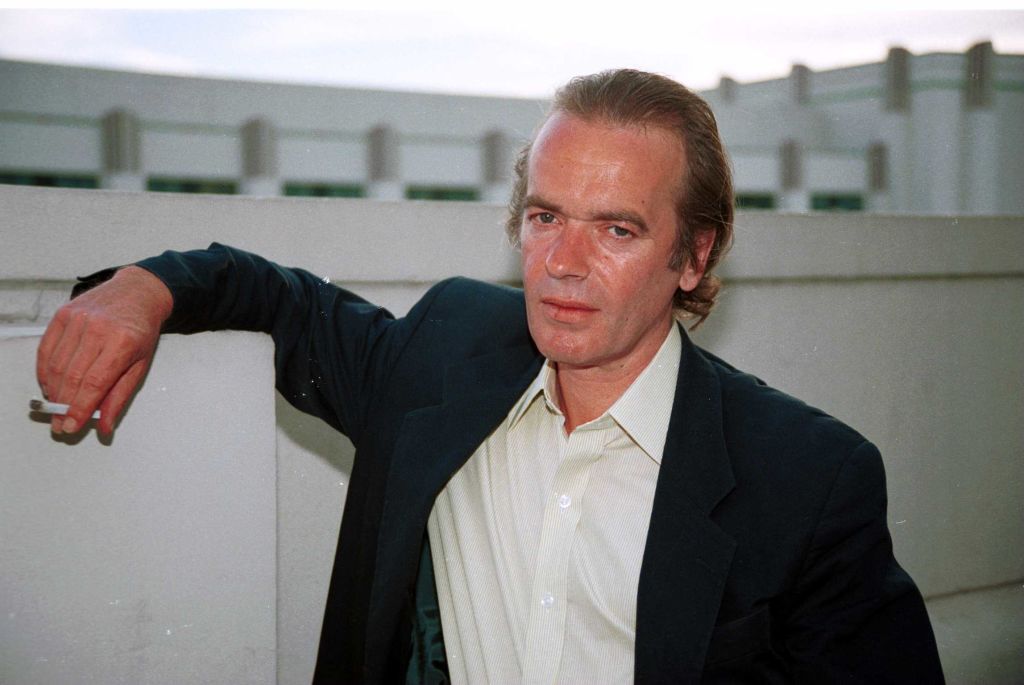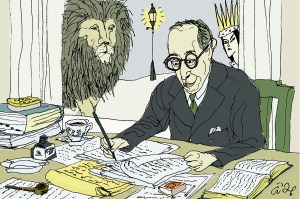There’s a form of social anxiety that a lot of people suffer from — FOMO, Fear of Missing Out. “Fear” suggests something imaginary, that isn’t really happening. Not so. I don’t fear missing out, because I know I am.
Friends are always asking me: are you appearing at the Hay Literary festival? No! Am I speaking at the Idler festival? No! Am I reading extracts from my book at the Cambridge Literary festival? No! “What?!” they exclaim in mock disbelief — and then ask why I’m not appearing at some small, obscure, local village literary fête, somewhere in the rectum of rural England.
I’ve gotten used to the seasonal snub from the lit-festival establishment. And there are literary events all over London that I haven’t been invited to as well. OK, I’ll live. That said, I confess I wish I’d been invited to the Martin Amis memorial service in June.
By all accounts it was a star-studded affair: Ian McEwan, Tina Brown, David Gilmour, Zadie Smith, Nigella Lawson and a veritable who’s-who of English literary and cultural life. Big-name affairs like these are fun to tell your friends about, but they’re no fun at all unless you’re a big name too. Otherwise, you just stand on the sidelines making small talk and watching the big names walk by.
Actually, there’s no reason why I should have been invited. I didn’t know Amis personally. We met once, very briefly. I was standing outside a club in Soho with my then-wife Julie Burchill and Martin and Clive James came up to us. James introduced himself and then Martin. Amis put out his hand to shake Julie’s and she said, “fuck this for a laugh” or something of the kind — and turned and charged off into the Soho sunset. What a snub!
Amis looked puzzled. James looked amused. And I looked like I wanted to cry; my long-held dream of being buddies with Mart and Clive and attending their famous Friday lunches and louche parties was now dead.
There were 700 people at Martin’s memorial and I bet many of them didn’t know Amis personally. I suspect there were a few people Amis loathed when he was alive. People like a friend of mine whom Amis once denounced as a “little shit” he would strangle next time they met. So why was the “little shit” there and not me?
Because even though we didn’t know Martin Amis personally, we all felt we knew him personally. Starting with his first novel, 1973’s The Rachel Papers, we grew up with him. Thanks to his fame we knew his personal story — first marriage, dental troubles, fallings-out with friends — as well as his fictional ones.
Once upon a time every clever young would-be male novelist in England wanted to be Martin Amis. He was our Mick Jagger. He made books and lit-criticism sexy. The guy had it all: the looks, the smarts, the talent, the fame — and he was great in the sack as well! I know this because three very different women gave him five-star reviews. What was his secret? “Short guys try harder,” he once wrote.
London literary life in the late 1970s to the late 1980s looks from today like a lost golden age. Writers didn’t fear fatwas or other people’s feelings. Literature was sexy. Writers were sexy. Publishing was sexy. Even critics got laid; now they just get fired.
For me it was a time of endless parties. Everyone was shagging everyone else and doing drugs and getting drunk — and still turning out good work. And then something happened to Martin and to us: we got old and cranky. By the 2000s nearly every new Martin Amis novel was given a critical kicking. In 2011 he left London for the safety of New York.
London literary life got all serious and stuffy. Some said it was “wokeness,” and a new generation of writers had no interest in the pale, stale and male mindset of the Amis-Christopher Hitchens crowd. We would not see their like again. The party was over — or so I thought.
And now I hear reports that London literary life is swinging again! Salons, public readings, private discussions are popping up in seedy bars, snooker halls, living rooms and even one palatial estate. True it has no obvious figureheads à la Amis, but give it time.
For some highbrow hedonists these events are just a damn good excuse to party with the best and brightest ending up legless and brainless in toilets doing coke at 3 a.m. A young novelist tells me that the scene is full of “male left-wing writers and critics who take tons of coke and try to get laid 24/7.” When my friend challenged one man about how he reconciled his high moral politics with his cheating promiscuity he replied that he believed in having “a penis for the many — and not the few.”
It’s good to know that the socialist dream is still alive and partying in London!
This article was originally published in The Spectator’s August 2024 World edition.


























Leave a Reply